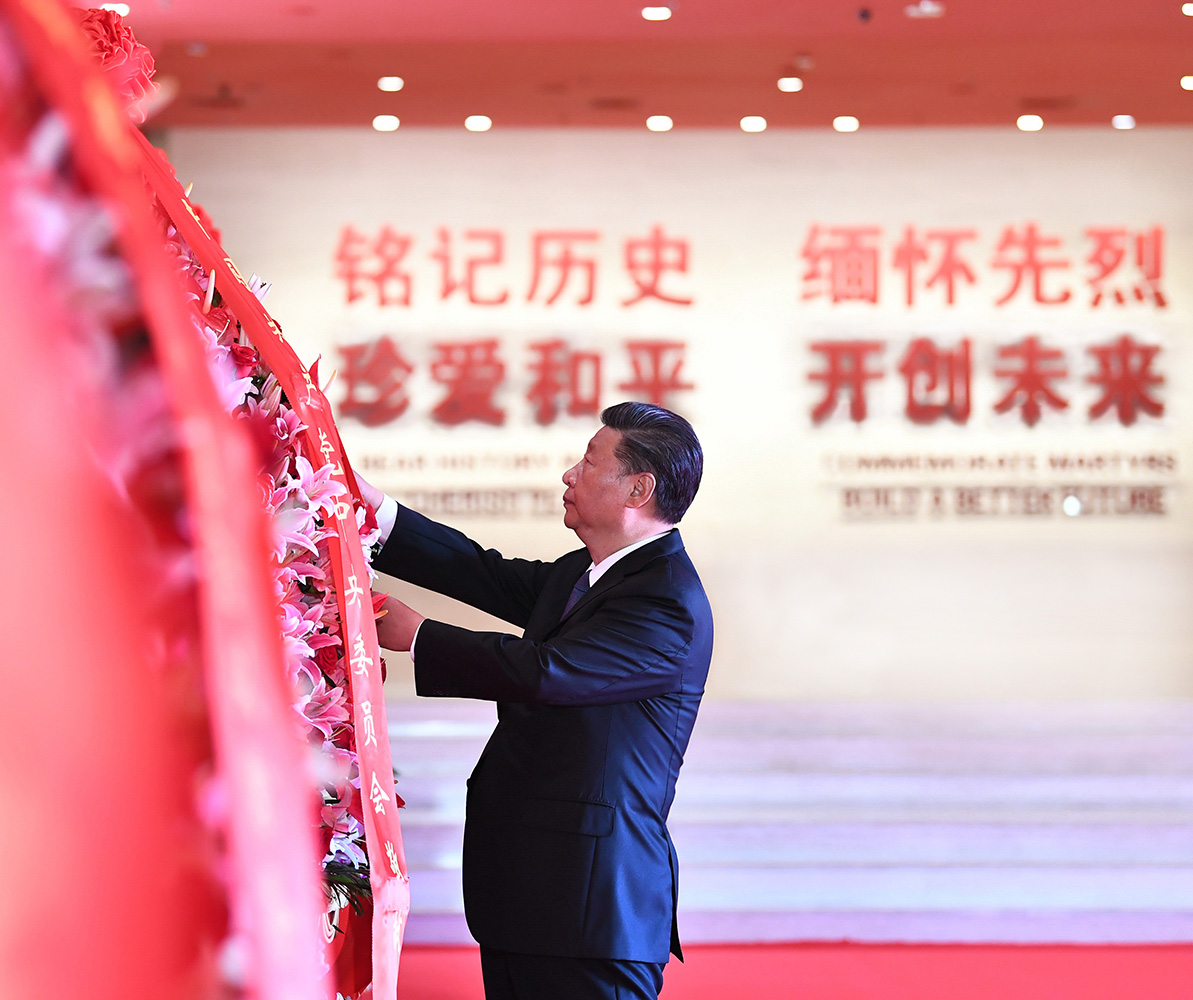
President Xi Jinping attends the ceremony to commemorate the 75th anniversary of victory in the War of Resistance Against Japanese Aggression and the World Anti-Fascist War at a museum near Lugou Bridge in southwestern Beijing on September 3, 2020. (Photo: Xinhua)
On September 3, President Xi Jinping attended a ceremony at the Museum of the War of Chinese People's Resistance Against Japanese Aggression in Beijing to commemorate the 75th anniversary of victory in the Chinese People's War of Resistance Against Japanese Aggression and the World Anti-Fascist War.
In the morning, President Xi presented a flower basket to the martyrs of the war. In the afternoon, he attended a symposium and delivered an important speech. It is said that from his actions and words, people realized the extraordinary meaning of this commemoration.
75 years
In February 2014, the Seventh Session of the Standing Committee of the Twelfth National People's Congress decided to set September 3 as the anniversary of the victory of the Chinese People's Anti-Japanese War.
On September 3, 2014, President Xi did the same at the memorial as six years later, presenting a flower basket and giving a core speech.
Veteran Wang Entian, 95, a soldier of the Eighth Route Army, participated in the veteran team at the National Day parade. At a symposium held after the ceremony at the Great Hall of the People on September 3 this year, he spoke as a representative of the veterans.
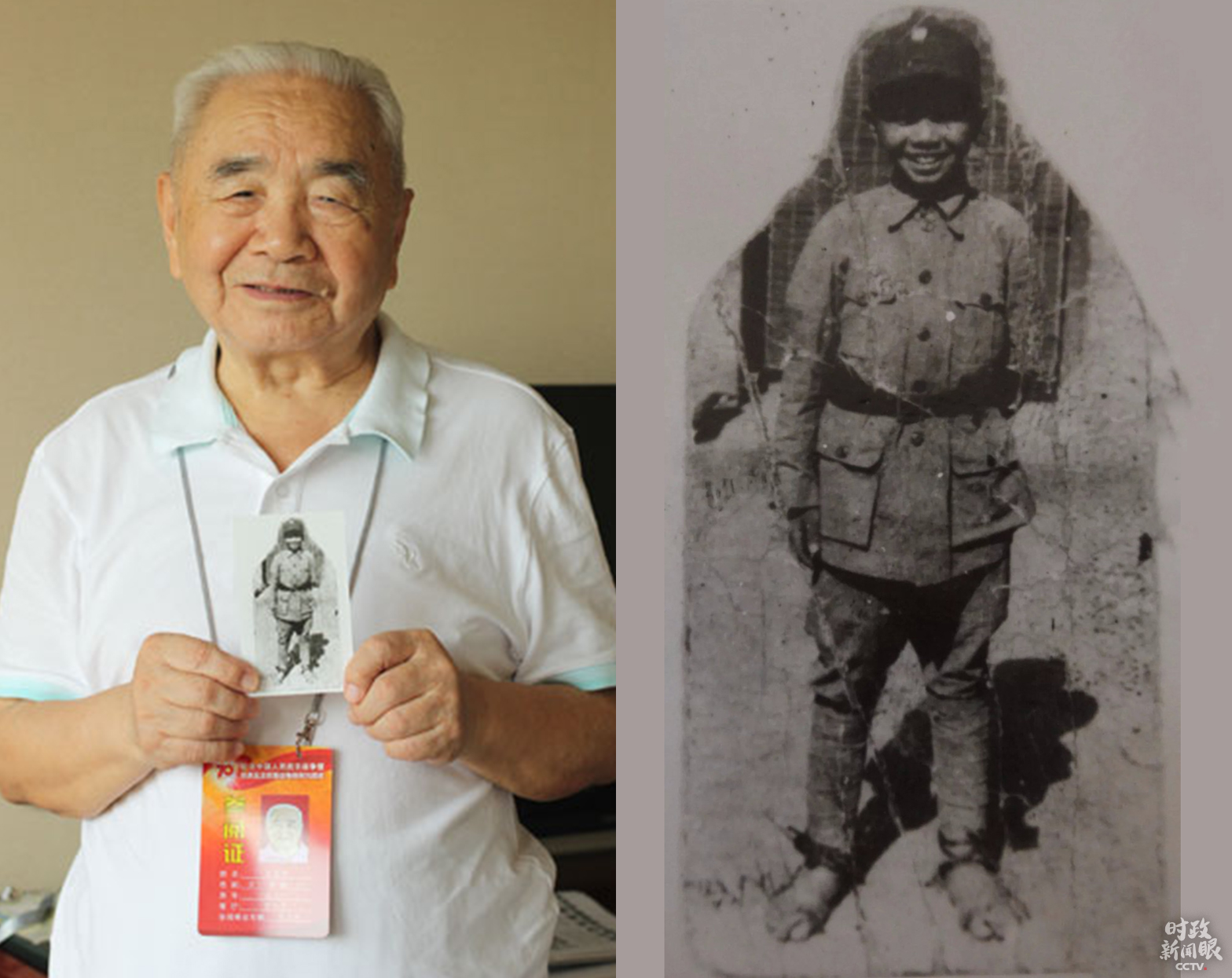
Wang Entian holds a picture of him taken in 1939. (Photo: CCTV)
In 1938, 13-year-old Wang Entian joined the army. As Wang was good at singing, he was selected by Chen Geng, commander of the 386 Brigade of the 129th Division of the Eighth Route Army, to join the army’s art team.
A year later in Songjiazhuang, Wuxiang in the Taihang Mountains, Chen took a precious photo of Wang with a captured camera.
At the symposium, President Xi said, “Learn from the past and then we will know the future.”
Great struggle, great victory
President Xi Jinping used the same phrase, “first time”, on both September 3, 2014 and September 3, 2015 to "position" the war as "China's first complete victory against foreign invasion in modern times." The war is forever recorded in the history of China, Xi noted.
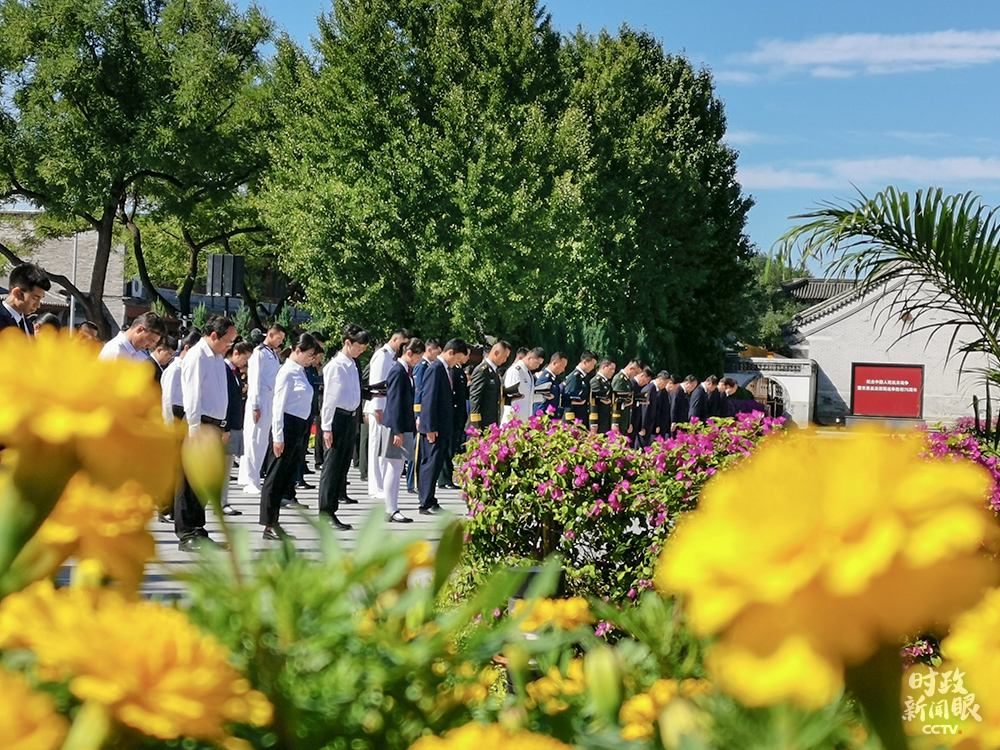
Representatives from all walks of life observed a silence at the Museum of the War of Chinese People's Resistance Against Japanese Aggression in Beijing on September 3, 2020. (Photo: CCTV)
This year at the symposium, Xi offered his latest conclusion on the war: "This was the longest, largest and most sacrificed fight for the liberation of the Chinese people from foreign invasions since modern times. It was also the first national liberation struggle that won a complete victory."
At the symposium, Xi also “attributed” the great victory to four aspects: national spirit with patriotism at the core, the Communist Party of China playing its mainstay role, the unity and bravery of the Chinese people in the war and the power of the Chinese people fighting side by side with anti-fascist allies and the people all around the world.
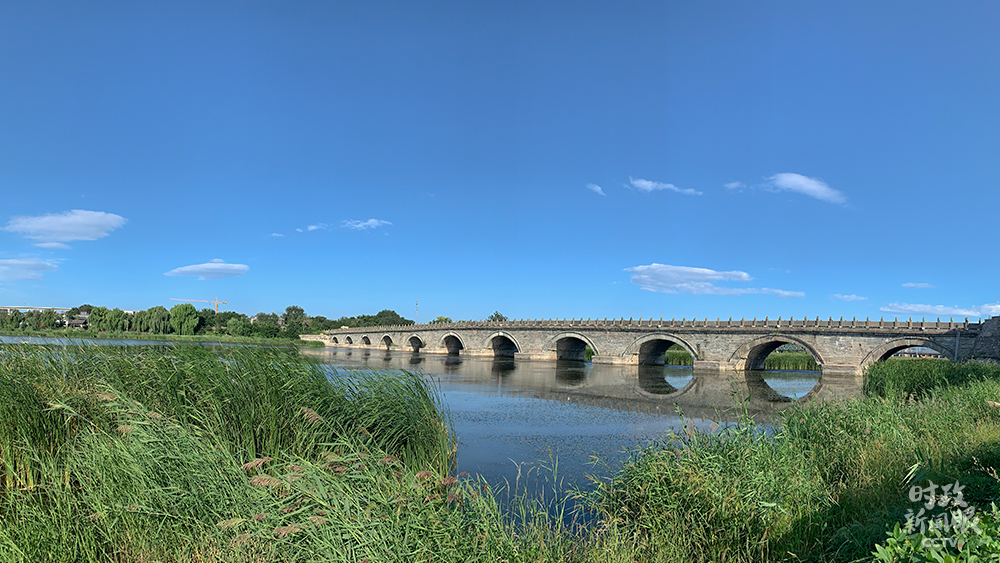
Lugou Bridge in Beijing. On July 7, 1937 Japanese soldiers attacked Chinese forces at the bridge, also known as the Marco Polo Bridge, marking the beginning of Japan's full-scale invasion of China. (Photo: CCTV)
On September 3 last year, Xi said, “We are now facing a long-term struggle of various kinds. At least it needs to last until the second centenary goal is achieved.”
Xi also said on the way forward, we will probably encounter more complicated risks and challenges that are unpredictable and unavoidable.
When they come, Chinese people must dare to struggle and be good at it.
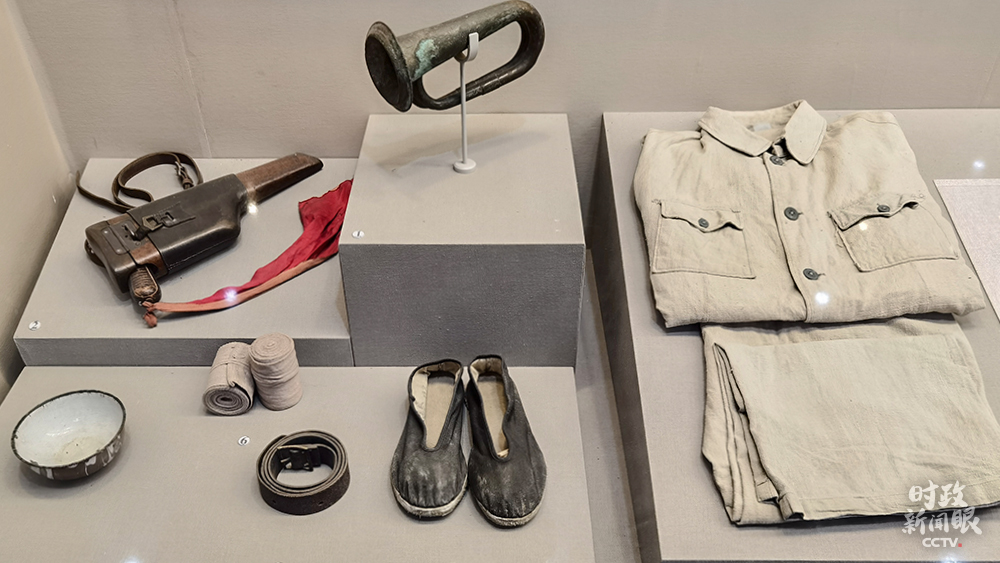
Belongings like a holster, bugle, shoes and clothes of a New Fourth Army soldier are displayed at the museum. (Photo: CCTV)
At the symposium this year, Xi made a comment about all risks and challenges that endanger the leadership of the Communist Party of China, China's socialist system, China's sovereignty, security and development interests, China's core interests, the fundamental interests of the people of the country, the country's achievement of the two centenary goals and the Great Rejuvenation of the Chinese Nation. "As long as they come, we will, we must fight resolutely, unwaveringly, without backing down, until victory is achieved," he said.
Great rejuvenation
At the symposium, Xi stated victory was a historical turning point: "The great victory of the Chinese People's War of Resistance Against Japanese Aggression established a historical turning point for the Chinese nation from a crisis in modern times to a great rejuvenation." At this point, Xi mentioned a “precious spiritual treasure”: the great spirit of resistance.
Along with the reiteration of the great spirit, Xi put forward a new proposition to inherit and carry forward the spirit of resistance in the new era: "We must carry forward the great spirit of the resistance, with the determination to overcome all difficulties, the courage to fight and the capacity to create, and fight for the great rejuvenation of the Chinese nation until the final victory."
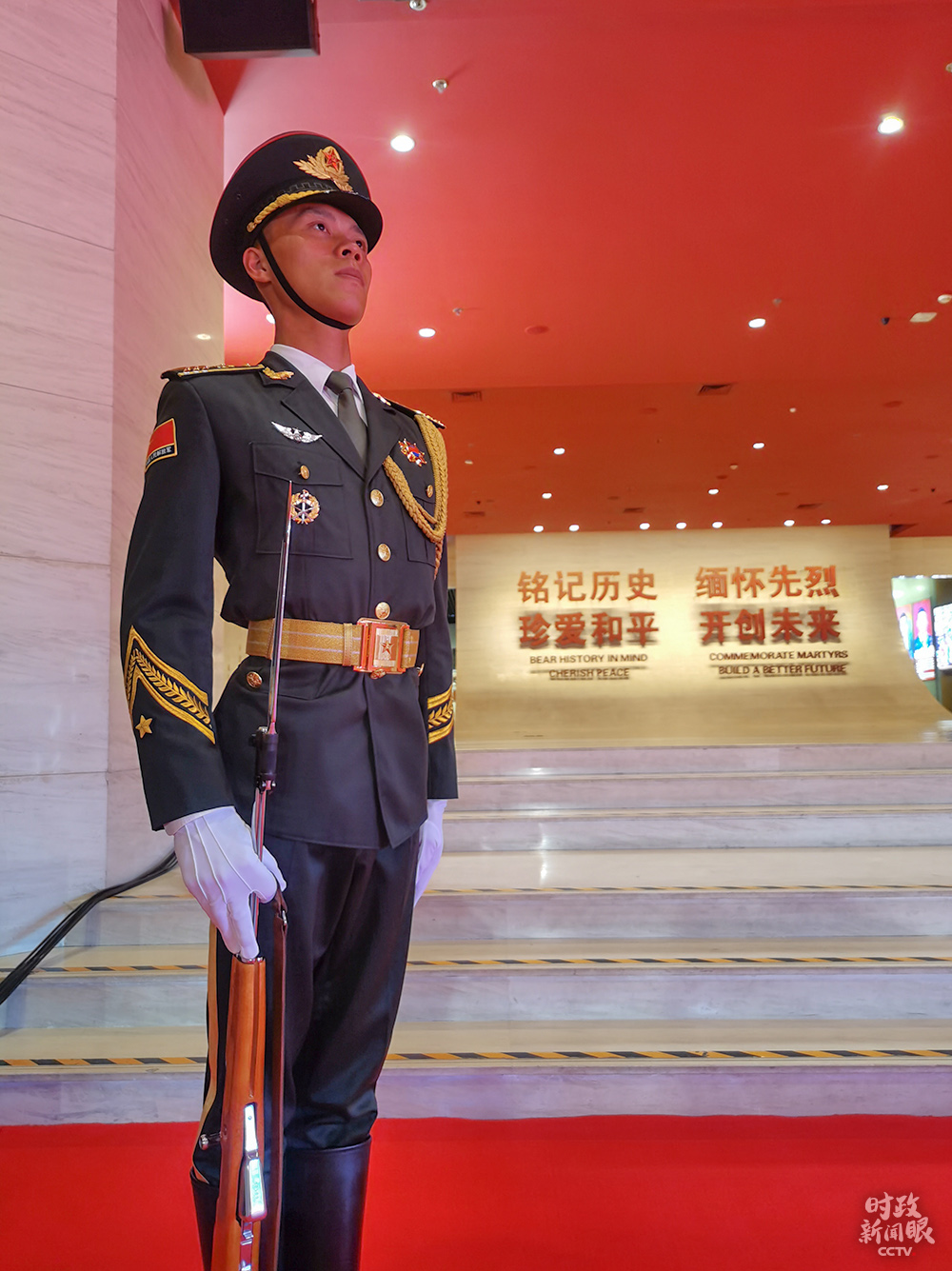
A guard of honor in the museum (Photo: CCTV)
For the realization of the great rejuvenation of the Chinese nation, Xi emphasized "five musts": We must adhere to the leadership of the Communist Party of China. We must adhere to the path of socialism with Chinese characteristics. We must adhere to the people-centered approach. We must adhere to the spirit of struggle. Finally, we must unswervingly follow the path of peaceful development.
At the same time, he reaffirmed that if anyone or any force has any wrong intentions, "the Chinese people will never agree!”
“Justice will prevail, peace will prevail, and the people will prevail!”
(Compiled by Song Zhe; Edited by Huang Jingjing; Source: CCTV)


